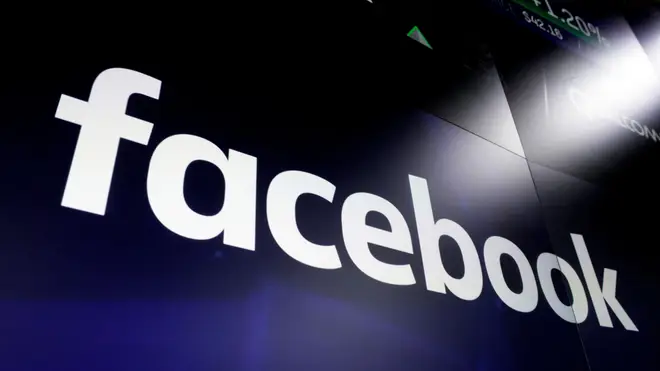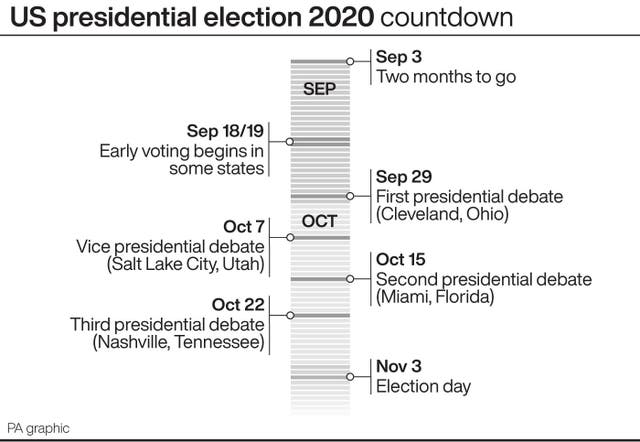
Ian Payne 4am - 7am
3 September 2020, 14:54

The company said it will restrict new political ads in the week before the election.
With just two months left until the US presidential election, Facebook has said it is taking more steps to encourage voting, minimise misinformation and reduce the likelihood of post-election “civil unrest”.
The company said it will restrict new political ads in the week before the election and remove posts that convey misinformation about Covid-19 and voting.
It will also attach links to official results to posts from candidates and campaigns declaring premature victories.
“This election is not going to be business as usual. We all have a responsibility to protect our democracy,” Facebook chief executive Mark Zuckerberg said in a post on Thursday.

“That means helping people register and vote, clearing up confusion about how this election will work, and taking steps to reduce the chances of violence and unrest.”
Facebook and other social media companies are being scrutinised over how they handle misinformation, given issues with President Donald Trump and other candidates posting false information and Russia’s interference in the 2016 White House elections and ongoing attempts to interfere in US politics.
Facebook has long been criticised for not fact-checking political ads or limiting how they can be targeted at small groups of people.
With the nation divided, and election results potentially taking days or weeks to be finalised, there could be an “increased risk of civil unrest across the country”, Mr Zuckerberg said.
In July, Mr Trump refused to publicly commit to accepting the results of the upcoming election, as he scoffed at polls that showed him lagging behind rival candidate Joe Biden.
That has raised concern over the willingness of Mr Trump and his supporters to abide by election results.
Under the new measures, Facebook says it will prohibit politicians and campaigns from running new election ads in the week before the election.
However, they can still run existing ads and change how they are targeted.
Posts with obvious misinformation on voting policies and the coronavirus pandemic will also be removed.
Users can only forward articles to a maximum of five others on Messenger, Facebook’s messaging app.
The company will also work with Reuters to provide official election results and make the information available both on its platform and with push notifications.
After getting caught off-guard by Russia’s efforts to interfere in the 2016 election, Facebook, Google, Twitter and other companies put safeguards in place to prevent it from happening again.
That includes taking down posts, groups and accounts that engage in “co-ordinated inauthentic behaviour” and strengthening verification procedures for political ads.
Last year, Twitter banned political ads altogether.
Mr Zuckerberg said Facebook had removed more than 100 networks worldwide engaging in such interference over the last few years.
“Just this week, we took down a network of 13 accounts and two pages that were trying to mislead Americans and amplify division,” he said.
But experts and Facebook’s own employees say the measures are not enough to stop the spread of misinformation – including from politicians and in the form of edited videos.
Facebook had previously drawn criticism for its ads policy that cited freedom of expression as the reason for letting politicians such as Mr Trump post false information about voting.
Trump campaign spokeswoman Samantha Zager criticised the ban on new political ads, saying it would prevent Mr Trump from defending himself on the platform in the last seven days of the presidential campaign.